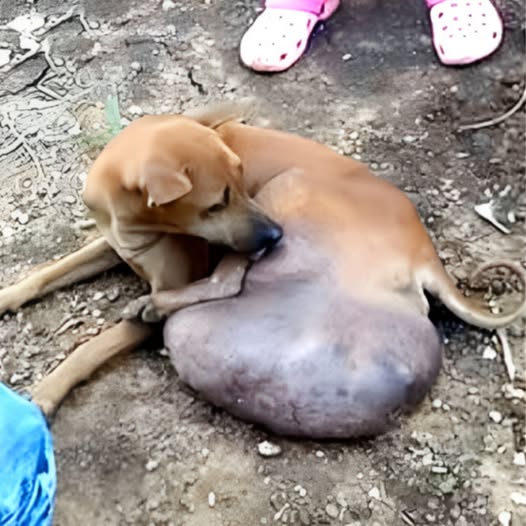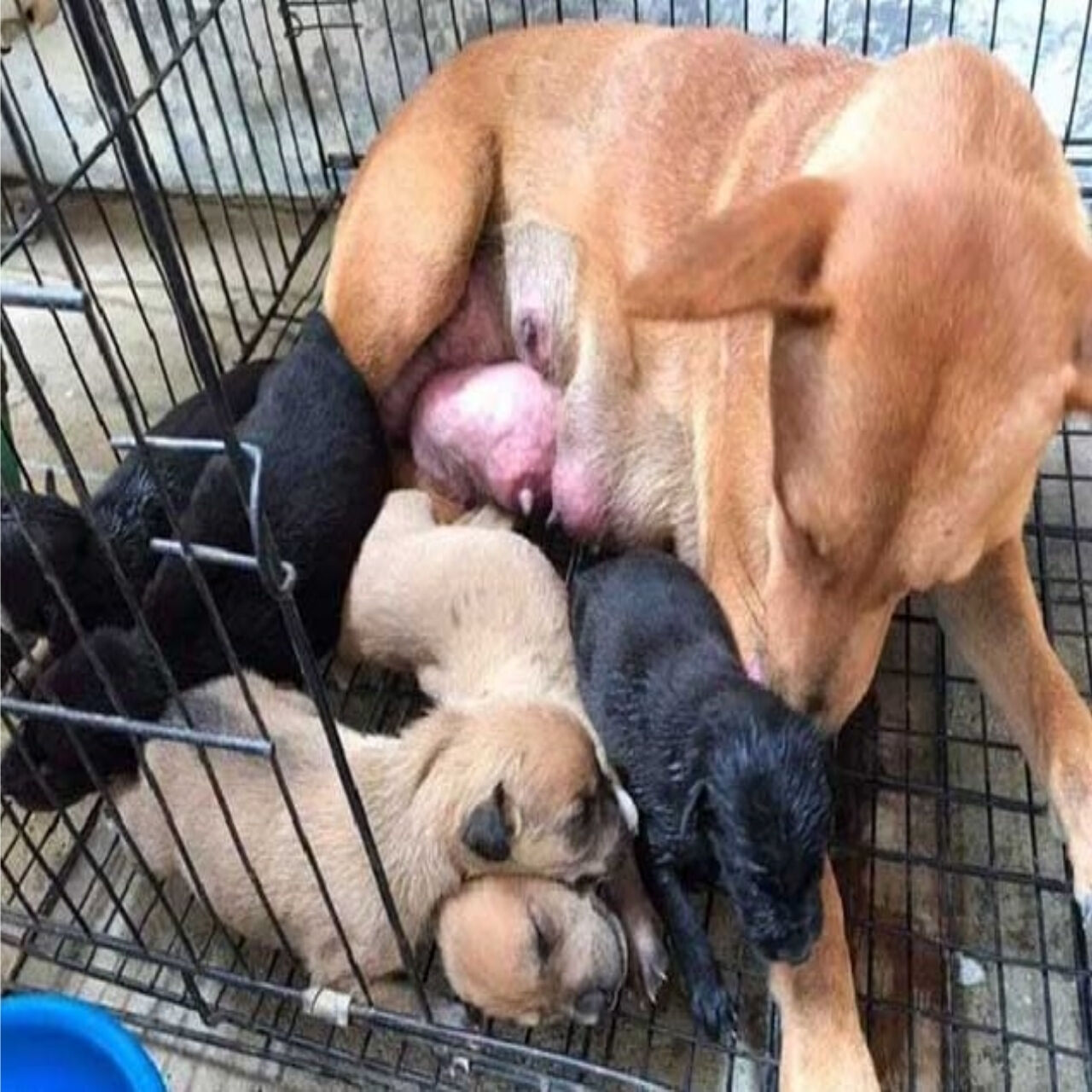He was just a puppy—curled beside a broken box, an empty bowl by his side, under the blazing sun. No food. No water. No hope. He didn’t flinch when I approached. Just looked at me with hollow eyes—too tired to beg, too used to being ignored. I knelt beside him and felt it—a faint breath, a tremble. A whisper of life still holding on. I picked him up and made a promise: he’d never be left behind again. We named him Chance. He was starving, sick, barely hanging on. But he fought. He slept deeply that first night, warm and safe. And in the morning—he wagged his tail. Now he follows us around, plays awkwardly, naps by our feet. Slowly, he’s learning to trust. To live. To love. He may have been discarded, but he never stopped believing.
That first tail wag was not a grand gesture. It was a faint, hesitant flicker, as if the muscles themselves were trying to remember an action from a long-lost dream. But for us, it was everything. It was the first glimmer of the dog he was meant to be, hidden beneath layers of starvation, sickness, and profound neglect. The journey from that broken box to our home was short in distance, but the journey from his past to his future was a marathon of patience, care, and unconditional love. The veterinarian confirmed our fears: he was severely malnourished, dehydrated, and battling a host of infections that had nearly claimed his fragile life. His chances, the doctor said cautiously, were fifty-fifty. It seemed his name was less of a title and more of a challenge—a dare to fate.
The first weeks were a delicate dance between medicine and comfort. Every two hours, we fed him a small amount of a special recovery formula, his tiny body too weak to handle a full meal. We cleaned the sores on his skin, administered antibiotics, and sat with him through long nights, listening to the soft rhythm of his breathing, a sound that became our most cherished reassurance. He slept almost constantly, his body desperately working to repair itself. In those early days, he was less a pet and more a precious, living flame we were cupping our hands around, shielding it from the slightest breeze. He didn’t play. He didn’t bark. He simply existed, absorbing the warmth, the quiet, and the gentle touches that were so alien to him. His world had shrunk to the safety of a soft bed and the reliability of a full bowl—a universe away from the blazing sun and the empty ceramic by the roadside.
Trust was not a switch to be flipped; it was a bridge to be built, one fragile plank at a time. For a long while, any sudden movement would cause him to flinch. A hand raised too quickly, even to toss a toy, would make him cower. He would eat his food with a desperate urgency, constantly looking over his shoulder as if expecting it to be snatched away. This behavior, known as resource guarding, was a heartbreaking window into his past, a past where every scrap was a battle. We learned to move slowly, to speak in soft tones, to place his food down and walk away, giving him the space he needed to feel secure. We never forced an interaction. Instead, we would simply sit on the floor, letting him approach on his own terms. The first time he nudged a hand with his nose was a milestone. The first time he fell asleep leaning against a leg was a victory. Each small act of faith on his part was a reward far greater than any we could have imagined.
Slowly, as his physical health returned, glimmers of a true puppy personality began to emerge. The awkwardness of his play was endearing; having never been socialized, he didn’t quite know the rules of the game. He would pounce on a toy with comical seriousness or chase his own tail in a dizzying circle until he fell over. His first bark wasn’t a fierce warning, but a surprised “boof” that seemed to startle him as much as it did us. We discovered his quirks: his love for sunbathing on a particular patch of the rug, his habit of “collecting” socks (not chewing, just carrying them to his bed), and the way his ear would twitch when he was dreaming. These were the details that transformed him from a tragic story into a cherished family member. He was no longer just a survivor; he was Chance, a dog with a funny, sweet, and wonderfully goofy soul.
What we didn’t anticipate was how profoundly he would rescue us in return. In caring for him, we learned a new depth of patience. In earning his trust, we understood the immense power of consistency and gentleness. Chance taught us to find joy in the smallest of things—a happy sigh as he settled at our feet, the ecstatic greeting at the door, the simple comfort of his presence. He became a living, breathing reminder of resilience. On days when the world felt overwhelming, a glance at this little dog who had survived the absolute worst and still found the courage to love was enough to recalibrate our perspective. That promise we made to him on that first day—that he would never be left behind again—became a promise we renewed to ourselves: a promise to choose compassion, to see the value in those the world has overlooked, and to believe in the power of a second chance. He was not a burden we took on, but a gift we were given, one that continues to enrich our lives every single day. His story is not just about a dog being saved by people; it’s about people being saved by the unwavering, forgiving love of a dog.












